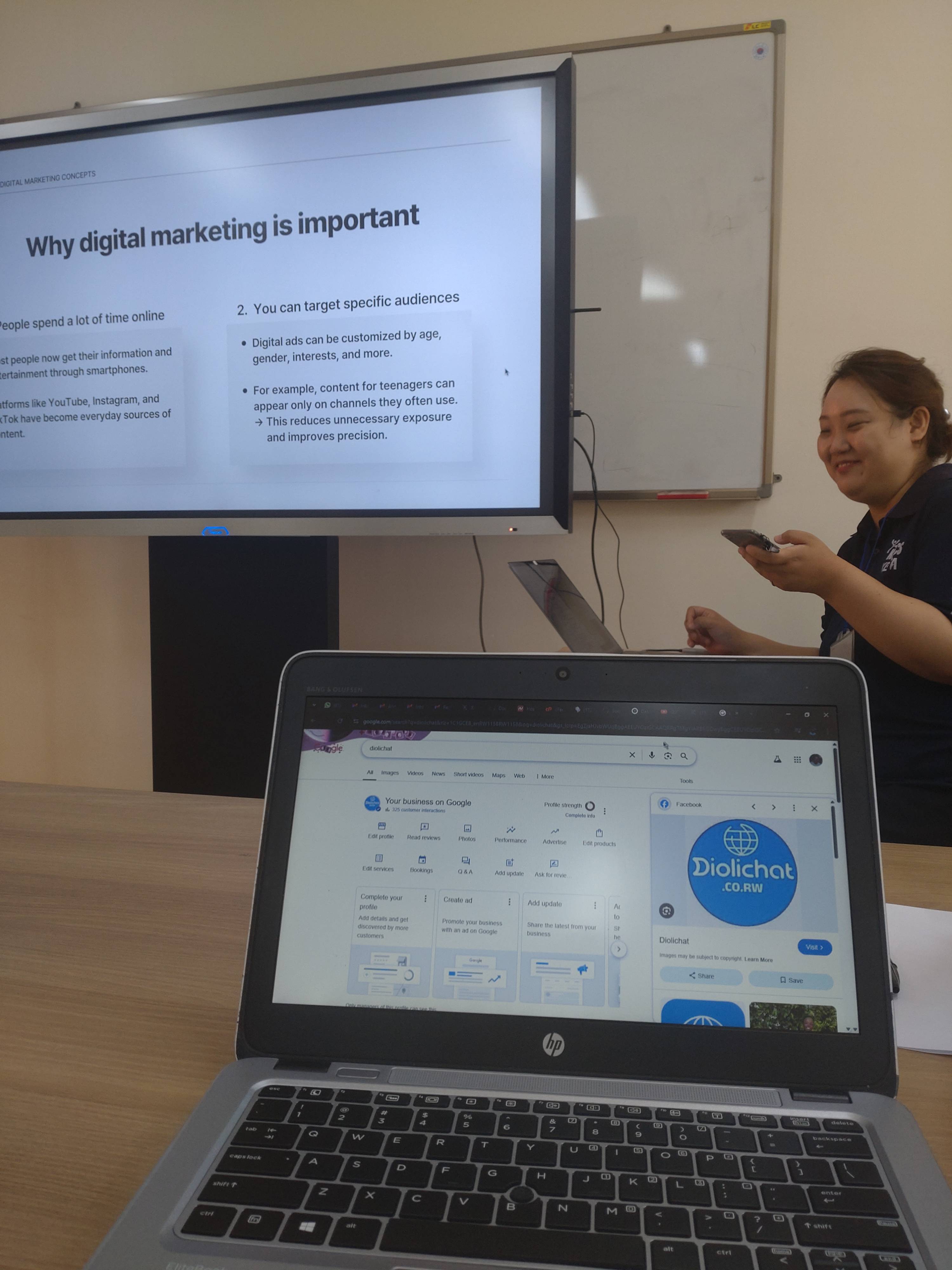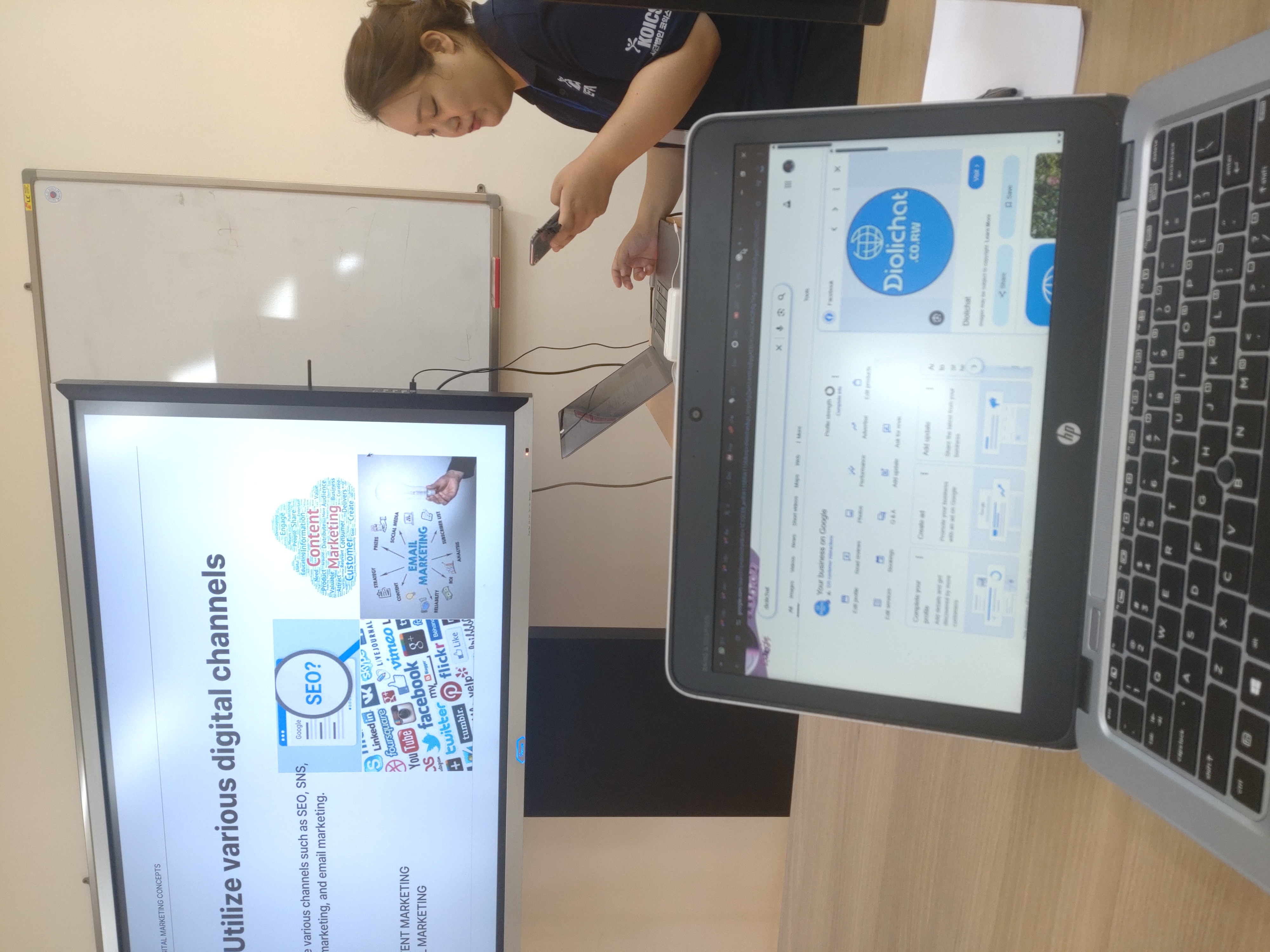Change Language
WHY DIGITAL MARKETING IS IMPORTANT IN BUSINESS
April 24, 2025 - 13

In today's fast-paced, technology-driven world, digital marketing has become a cornerstone of business success. From small startups to global corporations, leveraging digital channels is no longer optional—it's essential. Here's why digital marketing is critical for businesses aiming to thrive in the modern marketplace.
1. Wider Reach and Global Accessibility
Digital marketing breaks down geographical barriers, allowing businesses to connect with audiences worldwide. Through platforms like social media, search engines, and email campaigns, companies can engage with customers in real-time, regardless of location. A well-optimized website or targeted ad campaign can attract potential customers from across the globe, expanding market reach far beyond traditional methods.
Example: Take the case of a small artisanal coffee shop in Portland. By leveraging Instagram and Facebook, they showcased their unique blends and cozy atmosphere, attracting customers from as far as Europe. Travelers who discovered the shop online made it a point to visit during their trips, boosting sales and enhancing the brand's international reputation.
2. Cost-Effective Advertising
Compared to traditional marketing channels like TV, radio, or print ads, digital marketing is remarkably cost-effective. Businesses can run targeted campaigns on platforms like Google Ads or Facebook with flexible budgets, ensuring every dollar spent is optimized for maximum impact. Small businesses, in particular, benefit from this affordability, as they can compete with larger brands without breaking the bank.
Example: A tech startup initially invested in billboard advertising but saw little return. After switching to Google Ads, they targeted specific keywords related to their product, resulting in a 50% increase in website traffic and a 30% boost in sales—all while spending less than half of their previous advertising budget.
3. Targeted Audience Engagement
One of the standout advantages of digital marketing is its ability to target specific demographics. Tools like analytics and customer data allow businesses to tailor campaigns to the right audience based on age, interests, location, and behavior. This precision ensures higher engagement rates, as marketing efforts resonate with those most likely to convert into customers.
Example: A fashion retailer used customer data to segment their audience based on shopping habits. They then created tailored email campaigns for each segment—such as "frequent buyers" or "sale shoppers." This approach led to a 25% higher open rate and a 15% increase in click-through rates compared to their generic campaigns.
4. Measurable Results and Analytics
Unlike traditional marketing, digital marketing offers real-time insights into campaign performance. Tools like Google Analytics, social media insights, and email tracking provide detailed data on metrics like website traffic, click-through rates, and conversions. This allows businesses to measure ROI accurately, adjust strategies on the fly, and make data-driven decisions to improve outcomes.
Example: An e-commerce company ran two versions of their homepage—one with a prominent call-to-action button and another without. By analyzing the data, they found that the version with the button had a 20% higher conversion rate. This insight led them to implement the change site-wide, significantly boosting sales.
5. Builds Brand Loyalty and Trust
Digital marketing fosters direct communication between businesses and their audience. Engaging content, personalized email campaigns, and active social media presence help build stronger relationships with customers. By responding to feedback, addressing concerns, and sharing valuable content, businesses can establish trust and cultivate long-term brand loyalty.
Example: A skincare brand actively engaged with their followers on Twitter, addressing concerns, sharing skincare tips, and responding to customer queries. This not only increased their follower count by 40% but also led to a 10% rise in repeat purchases, as customers felt a stronger connection to the brand.
6. Enhances Customer Experience
A seamless online experience is crucial for modern consumers. Digital marketing strategies, such as user-friendly websites, mobile optimization, and personalized content, enhance the customer journey. For example, a well-designed e-commerce site with clear calls-to-action and fast load times can significantly boost customer satisfaction and sales.
Example: A travel agency redesigned their website to be mobile-friendly and added a live chat feature for instant customer support. As a result, they saw a 30% decrease in bounce rates and a 25% increase in bookings, as customers found it easier to navigate and get assistance.
7. Keeps You Competitive
In an era where consumers spend hours online daily, businesses that ignore digital marketing risk falling behind. Competitors leveraging SEO, social media, or content marketing are likely capturing your potential customers. Staying active in the digital space ensures your business remains relevant and competitive in a crowded market.
Example: A traditional bookstore that refused to adopt an online presence saw a steady decline in sales as customers shifted to online retailers. Meanwhile, a competitor who embraced e-commerce and digital marketing—offering online ordering and book recommendations via social media—saw a 20% increase in sales year-over-year.
8. Adapts to Changing Consumer Behavior
Consumer behavior is evolving, with more people relying on online research before making purchases. Digital marketing allows businesses to meet customers where they are—whether they're browsing social media, searching on Google, or reading blogs. By aligning with these habits, businesses can influence purchasing decisions at every stage of the buyer's journey.
Example: A restaurant that previously relied on walk-in customers started offering online ordering and delivery through their website and social media channels. This pivot not only kept them afloat during lockdowns but also increased their overall sales by 15% post-pandemic, as customers continued to appreciate the convenience.
Conclusion
Digital marketing is not just a trend; it's a fundamental aspect of modern business strategy. Its ability to reach global audiences, deliver measurable results, and foster meaningful customer relationships makes it indispensable. By embracing digital marketing, businesses can stay agile, build their brand, and drive sustainable growth in an increasingly digital world. Whether you're a small business owner or a corporate leader, investing in digital marketing is the key to unlocking your business's full potential.
Comments
Diolichat Blog
Welcome to our professional blog, your go-to resource for personal development, health and fitness, travel and adventure, technology insights, and lifestyle inspiration. Join us as we guide you on a transformative journey of growth and success. Stay updated with the latest health trends, discover tips for unforgettable travel experiences, explore the world of technology, and find inspiration for your lifestyle choices. Our blog delivers valuable insights and expert advice in a concise and professional manner. Get ready to elevate your life with our engaging content. Welcome aboard!
Popular Posts
-
 Exploring African Fashion: A Celebration of Diversity and Style
Exploring African Fashion: A Celebration of Diversity and Style
Lifestyle and Fashion
